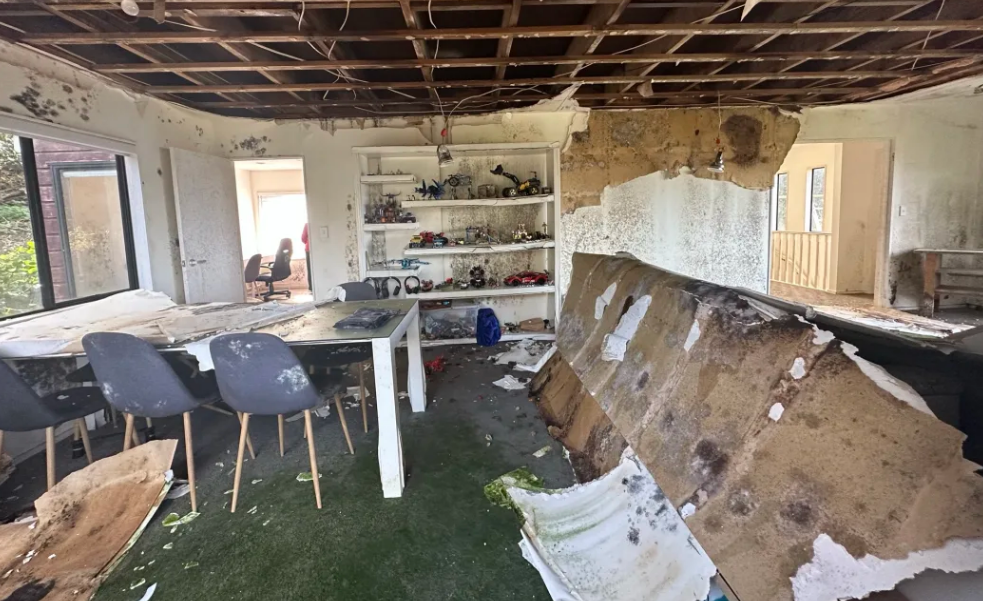
Earlier this month, the government established an assistance package for people unable to get back into their homes, providing up to $610 a week to help with the cost of renting another home.
But the package only covered displaced homeowners, leaving people with property held in trusts to fend for themselves.
Insurance payments helped many people to cover their additional rent costs in the wake of the Auckland flooding and Cyclone Gabrielle. But for some, these payments have already run out.
In July, the government announced the Temporary Accommodation Assistance package.
"This payment will help bridge the gap until repairs are undertaken or a decision is made on the future of their property," Minister for Social Development and Employment Carmel Sepuloni said at the time.
Payments ranged from $250 to 610 depending on family size and location.

Parnell resident Luci Harrison was among those who applied. However, she said there were issues from the start.
"I fronted up to the Work and Income in Glen Innes because I was sick of waiting on the phone - it said a two-hour wait on the phone.
"So, I went in and said, 'Look, I'm red-stickered, and I'm here to fill out the accommodation supplement that we're supposed to be getting'.
"They were like, 'What's a red sticker?'"
Harrison's disbelief at this response soon turned to despair. In the January floods, her property was compromised by a landslide originating on council land.
A red sticker on the front door forced Harrison to move out and find a rental.
With costs mounting and insurance payments ended, she had hoped the assistance package would help her pay that rent. But after a lengthy process, her application was denied.
The reason: Her property was held in a trust.
"What is the difference?" she said.
"You're still affected the same. I own the trust I have that owns my house. I've had it for 20, 30 years; it's not something I've just bought up out of the blue."
Harrison would have been eligible for $330 a week under the scheme. It would have only covered half of her rent, but it would have lightened the load. The setbacks she had faced since the start of the year were taking a heavy toll.
"I spent Saturday absolutely at breaking point, just crying the whole day, because I'm so desperate, and had so many roadblocks from so many different people.
"It's just atrocious."
Northcote resident Julie Armstrong had also been out of her home since January. Her family was now renting nearby at their own expense.
Armstrong started the application process on the day appointments with the Ministry of Social Development opened, 21 August.
"So I went with all my papers," she said.
"There was literally a folder worth of paper. You have to have your birth certificates for everyone in the family, your marriage certificate, your passports, and your IRD number - everything you could ever possibly imagine."
However, it was not enough to get Julie the support she needed. On 15 September, her application was declined as her slip-damaged property was held in a trust.
Her family of four missed out on $610 a week.
"It's just unfair," she said. "I don't understand why.
"We hold our property in a trust, but the only asset that the trust owns is the property, and the only beneficiaries of the trust are my husband and me.
"It's no different to owning it outright."
Muriwai Stickered Residents Group chairperson Mike Hibbert said there could be hundreds of families losing out on support for the same reason.
He said the issue stemmed from a lack of expertise among MSD staff.
"They don't have the ability to drill into the depths of complex trust structures," he said.
"Some trusts are set up with recipients as beneficiaries, some as trustees, some using limited liability companies as the trustee, but at the heart of it all is just one family who is out of their home and living in rentals."
MSD client service delivery director Angela Talbot said eligibility for the assistance payments relied on the applicant being the homeowner of the damaged property.
"As a trust is a separate legal entity, the applicant displaced from a property owned by a trust is not deemed to be the homeowner," she said.
Residents had written to Carmel Sepuloni asking for an explanation.
A spokesperson from her office told Checkpoint that for the payments to include people with properties in trusts, there would need to be a change in legislation, which could take months to set up.
The spokesperson said Cabinet would review the policy settings at the end of the year.














